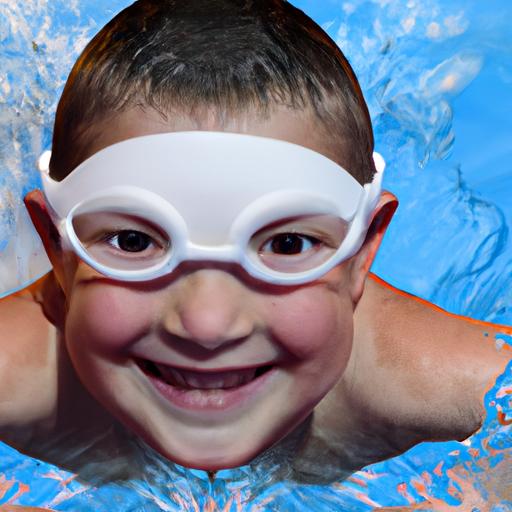Best Digital Cameras: Capture Life’s Moments in High Quality
Are you looking to upgrade your photography skills or simply need a new camera? With the advancement of technology, digital cameras have become a popular choice for capturing memories. But with so many options in the market, it can be overwhelming to choose the best digital camera for your needs. From amateur photographers to professional ones, everyone wants a camera that can produce high-quality images and videos. In this article, we will explore the top 5 best digital cameras and help you make an informed decision.
Types of Digital Cameras: Which one suits you best?
Digital cameras come in various shapes and sizes, each catering to different types of users and purposes. Here are the top 2 types of digital cameras you should consider:
Point-and-Shoot Cameras
Point-and-shoot cameras, also known as compact cameras, are popular among beginners and casual photographers. They are small, lightweight, and easy to use, making them perfect for everyday use. These cameras have a fixed lens and automatic settings, making it convenient for users who do not want to deal with manual adjustments. With advancements in technology, point-and-shoot cameras now come with impressive features such as high zoom capabilities and image stabilization.
Pros:
- Affordable price range
- Compact and portable
- Easy to use with automatic settings
- Perfect for beginners and casual photographers
Cons:
- Limited control over settings
- Limited zoom capabilities compared to other digital cameras
- Lower image quality compared to DSLRs and mirrorless cameras
DSLR and Mirrorless Cameras
DSLR (Digital Single Lens Reflex) and mirrorless cameras are more advanced options, suitable for professional photographers and enthusiasts. They offer interchangeable lenses and full manual control over settings, giving users more creative freedom. DSLRs use a reflex mirror that reflects the light from the lens into an optical viewfinder, while mirrorless cameras use a digital viewfinder or an LCD screen. Both types produce high-quality images and videos, but there are some differences in terms of design and features.
Pros:
- High image and video quality
- Interchangeable lenses for versatility
- Full manual control over settings
- Large sensors for better low-light performance
Cons:
- Expensive price range
- Bulky and heavy to carry around
- Steep learning curve for beginners
- More maintenance and care required compared to point-and-shoot cameras
Factors to Consider When Choosing a Digital Camera
With various brands and models in the market, it can be challenging to determine which digital camera is the best for you. Here are some essential factors to consider before making a purchase:
Sensor Size and Megapixels
The sensor size and megapixels of a digital camera play a significant role in determining its image quality. The larger the sensor, the more light it can capture, resulting in better low-light performance and sharper images. Megapixels refer to the resolution of the camera, which determines the size of the image. Generally, the higher the megapixels, the larger the print size. However, a high number of megapixels does not always guarantee better image quality, as other factors such as lens quality and sensor technology also play a part.
Lens Quality and Zoom Capabilities
The lens is another crucial factor that affects the performance of a digital camera. Point-and-shoot cameras usually have a fixed lens, while DSLRs and mirrorless cameras offer interchangeable lenses. The quality of the lens will affect the sharpness, clarity, and overall image quality. Moreover, pay attention to the zoom capabilities of the camera. Optical zoom, where the lens physically extends to magnify the subject, is preferred over digital zoom, which simply enlarges the image digitally.
Video Recording Capability
If you are interested in creating videos, consider a digital camera that offers high-resolution video recording. Both DSLR and mirrorless cameras are capable of recording 4K videos, which provide stunning details and clarity. Point-and-shoot cameras also offer video recording, but the quality may not be as good as DSLRs and mirrorless cameras.
Top 5 Best Digital Cameras
After considering the types of digital cameras and essential factors to look out for, here are our top picks for the best digital cameras:
1. Sony Alpha A7R IV Mirrorless Camera
The Sony Alpha A7R IV is a top-of-the-line mirrorless camera, perfect for professional photographers and enthusiasts. It features a full-frame 61-megapixel sensor, making it one of the highest resolution cameras in the market. The camera also offers 15 stops of dynamic range, impressive low-light performance, and 10 frames per second burst shooting. With excellent autofocus capabilities and 4K video recording, this camera is a versatile and powerful tool for capturing high-quality images and videos.
2. Canon PowerShot G7 X Mark III
The Canon PowerShot G7 X Mark III is an excellent point-and-shoot camera for those looking for a compact and lightweight option. It features a 20.1-megapixel sensor, a 24-100mm f/1.8-2.8 lens, and 4K video recording, making it a powerful camera in a small package. The added bonus of a flip-up screen also makes it a popular choice among vloggers and social media users.
3. Nikon Z6 II Mirrorless Camera
The Nikon Z6 II is a highly capable mirrorless camera, suitable for both photography and videography. It boasts a 24.5-megapixel full-frame sensor, excellent low-light performance, and 14 frames per second burst shooting. With 4K video recording, in-body image stabilization, and a high-resolution electronic viewfinder, this camera is an all-around performer.
4. Panasonic Lumix ZS100 Point-and-Shoot Camera
The Panasonic Lumix ZS100 is a budget-friendly point-and-shoot camera with impressive features. It has a 20.1-megapixel sensor, a 25-250mm f/2.8-5.9 lens, and 4K video recording capabilities. Additionally, the camera offers manual control over settings, making it suitable for those looking to learn photography.
5. Fujifilm X-T3 Mirrorless Camera
The Fujifilm X-T3 is a popular choice among professional photographers, thanks to its retro design and excellent performance. It has a 26.1-megapixel APS-C sensor, a high-speed autofocus system, and 30 frames per second burst shooting. The camera also offers 4K video recording, various film simulation modes, and a tilting LCD screen for flexibility in shooting angles.
Frequently Asked Questions About Digital Cameras
Is it worth upgrading from a point-and-shoot camera to a DSLR or mirrorless camera?
It depends on your needs and level of expertise. If you are a casual photographer who wants convenience and ease of use, a point-and-shoot camera may suffice. However, if you want more control over settings and the ability to interchange lenses, upgrading to a DSLR or mirrorless camera would be beneficial.
Which brand of digital camera is the best?
There is no one “best” brand as it ultimately comes down to personal preference and the specific features you are looking for. Popular brands include Canon, Nikon, Sony, and Fujifilm, each offering a variety of models to suit different needs.
Can I use my smartphone instead of a digital camera?
While smartphones offer convenience and accessibility, digital cameras still provide better image quality and more advanced features. If you are serious about photography, investing in a good digital camera would produce better results.
How long does a digital camera last?
With proper care and maintenance, a digital camera can last for several years. However, it may become outdated as technology advances, and newer models are released.
Are there any downsides to using a mirrorless camera?
Mirrorless cameras have smaller batteries compared to DSLRs, resulting in shorter battery life. Moreover, due to the electronic viewfinder, they tend to use up more battery power than optical viewfinders on DSLRs.
Conclusion: Choose the Best Digital Camera for Your Needs
In conclusion, the best digital camera for you depends on your needs, budget, and level of expertise. Point-and-shoot cameras are perfect for beginners or casual photographers, while DSLR and mirrorless cameras cater to professional and enthusiast photographers. Consider factors such as sensor size, lens quality, and video recording capabilities when choosing a digital camera. With our top 5 picks and FAQs, we hope this article has helped you in making an informed decision. Happy shooting!
Click xoce.info to explore more about digital cameras and photography tips!



